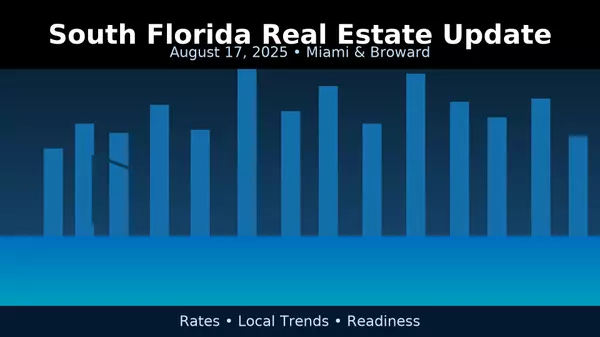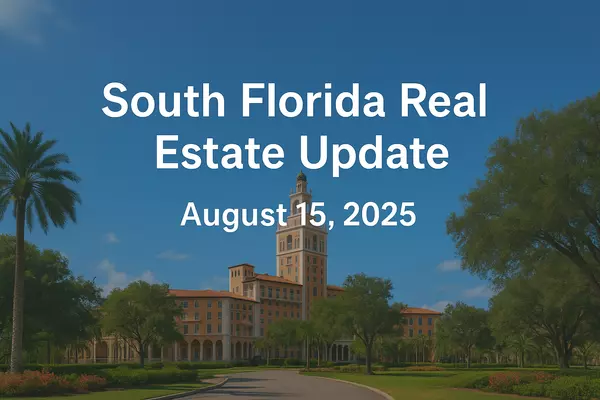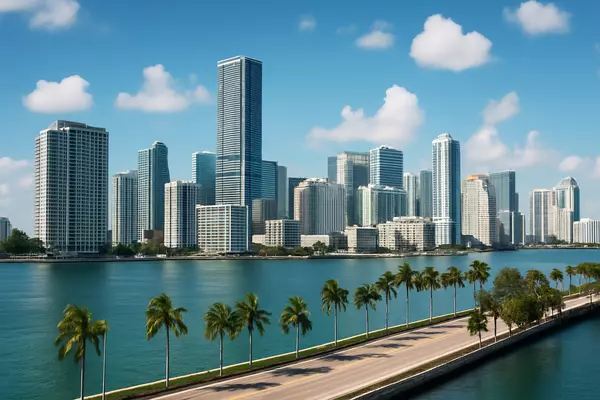Exploring Miami's Historic Landmarks: A Journey Through Time
Exploring Miami's Historic Landmarks: A Journey Through Time
Miami is often celebrated for its vibrant nightlife, stunning beaches, and modern skyline, but the city also boasts a rich history that is reflected in its historic landmarks. From ancient sites to iconic architectural wonders, Miami’s historic landmarks offer a fascinating glimpse into the past. Join us as we explore some of the most significant historic landmarks in Miami and uncover the stories behind them, with compelling statistics and data to illustrate their importance.
The Ancient Tequesta Indian Circle
Located at the mouth of the Miami River, the Miami Circle is a unique archaeological site believed to be over 2,000 years old. Discovered in 1998 during the construction of a new building, this ancient site consists of a perfect circle of 24 large holes cut into the bedrock, thought to be remnants of a structure built by the Tequesta Indians. The Miami Circle is one of the few remaining pieces of evidence of the Tequesta civilization, providing a rare glimpse into Miami’s prehistoric past. The site was designated a National Historic Landmark in 2009, highlighting its cultural and historical significance.
Vizcaya Museum and Gardens
Built in the early 20th century, the Vizcaya Museum and Gardens is a stunning example of Mediterranean Revival architecture. Originally the winter estate of industrialist James Deering, Vizcaya features a grand villa surrounded by lush, meticulously manicured gardens. The estate spans 50 acres, including 10 acres of formal gardens. In 2023, Vizcaya attracted over 300,000 visitors, making it one of Miami's top cultural attractions. Visitors can explore the opulent interiors filled with European antiques and decorative arts, as well as the beautifully landscaped gardens that offer breathtaking views of Biscayne Bay.
The Freedom Tower
The Freedom Tower is one of Miami’s most iconic landmarks, symbolizing the city’s rich immigrant history. Built in 1925 as the headquarters of the Miami Daily News, the tower later served as a processing center for Cuban refugees fleeing Fidel Castro’s regime in the 1960s. Over 450,000 Cuban refugees were processed through the Freedom Tower during this period, earning it the nickname "The Ellis Island of the South." Today, the Freedom Tower is a museum and cultural center, commemorating the contributions of Cuban Americans to Miami and the United States. Its distinctive architecture and historical significance make it a must-visit landmark.
The Biltmore Hotel
Opened in 1926, the Biltmore Hotel in Coral Gables is a luxurious, historic hotel that has hosted numerous celebrities, politicians, and even royalty. Designed by renowned architects Schultze and Weaver, the Biltmore’s grandiose style is reminiscent of European palaces. The hotel’s iconic tower, inspired by the Giralda in Seville, Spain, is a defining feature of the Miami skyline. The Biltmore has 271 rooms and suites, a renowned golf course, and a pool that was once the largest in the world. The Biltmore’s rich history and elegance continue to attract visitors from around the world, with an occupancy rate averaging 75% in 2023.
The Deering Estate
The Deering Estate, another historic landmark associated with the Deering family, is a 444-acre environmental, archaeological, and historical preserve. Located along the coast of Biscayne Bay, the estate includes the Stone House and the Richmond Cottage, both of which are listed on the National Register of Historic Places. The Deering Estate is home to 12 known archaeological sites, including prehistoric burial mounds and shell middens. In 2023, the estate welcomed over 200,000 visitors, offering guided tours, nature walks, and educational programs that provide an immersive experience of Miami’s natural and historical heritage.
Art Deco Historic District
Miami Beach’s Art Deco Historic District is world-famous for its unique architectural style. The district contains the largest concentration of Art Deco buildings in the world, with over 800 preserved structures. These buildings, characterized by their pastel colors, geometric patterns, and neon signs, were constructed during the 1920s and 1930s. Walking tours of the district offer a fascinating journey through Miami’s architectural evolution and the glamorous history of Miami Beach. The district attracts millions of visitors annually, contributing significantly to Miami Beach’s tourism industry, which generated over $18 billion in 2023.
Cape Florida Lighthouse
Located at the southern tip of Key Biscayne, the Cape Florida Lighthouse is Miami’s oldest standing structure. Built in 1825 and reconstructed in 1846 after being damaged during the Second Seminole War, the lighthouse played a crucial role in guiding ships along Florida’s coast. The lighthouse stands 95 feet tall, and visitors can climb the 109 steps to the top for panoramic views of the Atlantic Ocean and Biscayne Bay. The lighthouse and its surrounding park, Bill Baggs Cape Florida State Park, attracted over 1.2 million visitors in 2023, offering a peaceful retreat with rich historical significance.
Conclusion
Miami’s historic landmarks offer a captivating blend of history, culture, and architectural beauty. Exploring these sites provides a deeper understanding of the city’s past and its evolution into the vibrant metropolis it is today. Whether you’re a history enthusiast or simply looking to experience another side of Miami, these landmarks are sure to enrich your appreciation of this dynamic city.
For more insights on Miami’s history or to explore real estate opportunities near these historic landmarks, contact William Gartin at 305-842-6097 or visit williamgartinrealestate.com. As an experienced realtor with eXp Realty, I can help you find your perfect home in Miami and guide you in experiencing the best that this amazing city has to offer.
Categories
Recent Posts











